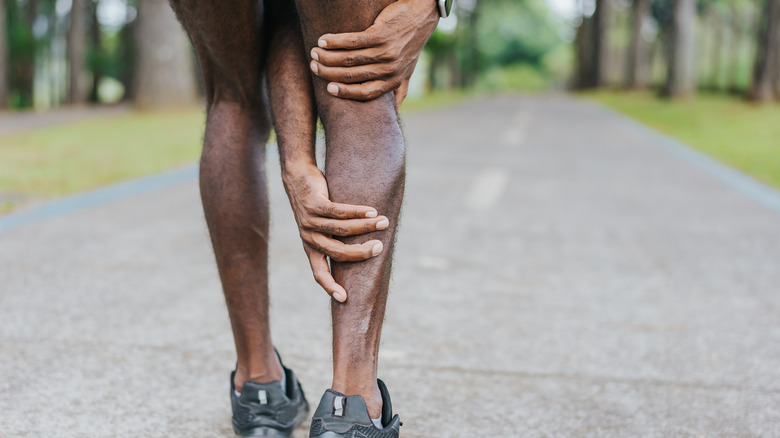What Happens To Your Body When You Get Severely Dehydrated
Water, the elixir of life, is an essential component that fuels the intricate machinery of our bodies. It is the elemental factor that ensures our cells, organs, and tissues receive the necessary hydration to function optimally.
While the concept of hydration seems straightforward, it extends beyond merely drinking water. Water is the vehicle by which our bodies maintain their delicate balance, transporting vital nutrients, regulating temperature, and even aiding in waste elimination. It's not just about quenching your thirst; it's about keeping the body's intricate systems running smoothly.
Hydration plays a critical role in maintaining our health. When the body is deprived of this life-sustaining resource, it enters a state of dehydration. Dehydration is not to be taken lightly, as it can profoundly affect our overall well-being. It is particularly more disastrous if it occurs to folks while they are adventuring outdoors. So, let's unravel the intricacies of dehydration and gain a deeper understanding of what unfolds within the body when it is severely deprived of water.
The signs and states of dehydration
Hydration, or the lack thereof, manifests in a spectrum of signs and stages, providing valuable insights into our body's water balance. Understanding these indicators can be instrumental in maintaining our health.
The early signs of dehydration often include increased thirst, dark yellow urine, and dry mouth. These mild symptoms serve as a call to action, prompting us to replenish our fluid intake. As dehydration progresses, moderate signs begin to emerge, such as fatigue, headache, and decreased urine output. The body is working harder to conserve the water it has left, and these signs are clear reminders to take hydration seriously. Severe dehydration is a critical stage where the body's mechanisms are struggling to cope. Symptoms may intensify, including rapid heartbeat, sunken eyes, confusion, and very dark urine. At this point, urgent medical attention is crucial, as severe dehydration can be life-threatening.
By recognizing these signs and stages of hydration, we can proactively address our body's needs, ensuring that we maintain a proper fluid balance for overall well-being and health.
Cardiovascular strain
Cardiovascular strain is a significant concern when it comes to severe dehydration. In such conditions, the risk of heat-related illnesses like heart disease and stroke skyrockets, as the body's natural cooling mechanisms become compromised. Prolonged exposure to heat and a lack of adequate hydration can lead to heat exhaustion or, in extreme cases, heatstroke, which can put immense stress on the cardiovascular system.
Severe dehydration can cause the blood to thicken, making it harder for the heart to pump and circulate, which can lead to increased heart rate and elevated blood pressure. These effects are not only detrimental to overall cardiovascular health but can also be particularly worrisome for individuals engaged in outdoor adventures. Hikers, athletes, and outdoor enthusiasts are at an increased risk due to their exposure to harsh environmental conditions.
Recognizing the importance of staying well-hydrated during outdoor activities is crucial to safeguard against the cardiovascular strain and reduce the likelihood of heat-related illnesses, ensuring a safer and more enjoyable outdoor experience.
Muscular fatigue
Muscular fatigue is a common consequence of dehydration, often stemming from reduced blood flow to the muscles. When the body lacks adequate hydration, it struggles to maintain an optimal blood volume, and this leads to a decrease in the flow of oxygen and nutrients to the muscles. As a result, muscle cells may not receive the essential resources needed to function at their best, leading to fatigue, weakness, and decreased endurance. This circulatory inadequacy can significantly impact physical performance, making activities more strenuous and less efficient.
For those adventuring outdoors, dehydration poses an even more significant threat. The combination of physical exertion, exposure to heat, and limited access to water sources increases the risk of dehydration. This can result in a host of performance deficits, from decreased strength and endurance to impaired cognitive function, which can be especially dangerous in remote or challenging outdoor environments. Fortunately, many of the consequences of dehydration can be reversed with proper rehydration. Adequate fluid intake can help restore blood volume, improve circulation to muscles, and revitalize energy levels, allowing adventurers to continue their pursuits with reduced risk and enhanced performance. Therefore, maintaining optimal hydration is not just a matter of comfort; it's a fundamental safety consideration for those exploring the great outdoors.
Kidney malfunction
The kidneys play a pivotal role in maintaining the body's water balance, regulating electrolytes, and filtering waste products from the bloodstream. Normally, the kidneys work to filter excess water and waste from the blood, resulting in the production of urine. However, when the body experiences dehydration, the kidneys undergo several key adaptations to conserve water and maintain overall fluid balance.
In cases of dehydration, the kidneys receive signals from the body to minimize water loss. One primary response is to reduce the volume of urine produced. As dehydration progresses, the urine becomes more concentrated. This increased concentration is a result of the kidneys reabsorbing more water and concentrating the waste products in a smaller volume of urine. Consequently, the urine can appear darker in color, which is often one of the early signs of dehydration. This change in urine concentration is a clear indicator that the body is attempting to preserve water, even at the expense of excreting waste products less efficiently.
Impaired kidney function can pose significant risks for individuals adventuring outdoors. Impaired kidney function can result in an inability to effectively regulate the balance of fluids and electrolytes in the body. Difficulties in regulating these electrolytes can affect muscle function, nerve signaling, and overall well-being during outdoor activities.
Digestive issues
Dehydration is a common contributor to indigestion. Digestive issues can encompass a range of problems, but constipation and impaired nutrient absorption are two significant concerns. Constipation can lead to discomfort and a feeling of sluggishness, which can be especially detrimental when hiking, camping, or participating in physically demanding outdoor activities. The lack of regular bowel movements can also result in an accumulation of waste products, which may affect overall energy levels and stamina.
Impaired nutrient absorption can lead to deficiencies in essential vitamins and minerals, which are crucial for maintaining physical and mental performance. In an outdoor setting, where individuals may not have access to a wide variety of foods, nutrient deficiencies can be particularly problematic. Moreover, digestive discomfort can be distracting and take away from the enjoyment of outdoor adventures. It can also lead to irritability and decreased focus, which may affect one's ability to navigate challenging terrains or make important decisions.
Cognitive and emotional impairment
Severe dehydration doesn't just affect the body physically; it also exerts a significant impact on mental and emotional well-being. The brain, like all other organs, relies on proper hydration to function optimally. When dehydration occurs, several cognitive and emotional effects become apparent.
Dehydration can lead to reduced cognitive abilities, including difficulties with concentration, memory, and problem-solving. It can hinder decision-making and the ability to react quickly to changing circumstances, which are crucial skills during outdoor adventures. Dehydration often leads to mood alterations, including increased irritability, anxiety, and even feelings of frustration. Emotional stability can be compromised, which can be particularly problematic when faced with challenging outdoor situations.
For individuals venturing into the great outdoors, dehydration can result in extreme fatigue and lethargy, making it challenging to stay motivated and engaged in outdoor activities. A lack of motivation and enthusiasm can hamper the overall experience. Impaired cognitive function can lead to difficulties with navigation, map reading, and route-finding. This can increase the likelihood of getting lost, which is a significant concern when exploring unfamiliar outdoor areas. Reduced alertness and slower reaction times can lead to safety issues. Whether it's handling outdoor equipment or responding to unforeseen dangers, a compromised cognitive state can heighten the risk of accidents. Mood changes, irritability, and frustration can affect group dynamics. Outdoor adventures often demand mental resilience to cope with challenging conditions. Dehydration can erode this resilience, making it more difficult to persevere through adverse weather, physical exertion, and unforeseen obstacles.
Long-term consequences
Chronic dehydration can have profound and far-reaching effects on one's overall health. Over time, the cumulative impact of inadequate hydration can contribute to various health conditions and complications. Insufficient fluid intake can lead to concentrated urine, which may increase the likelihood of forming kidney stones. Inadequate hydration can lead to a decrease in urinary flow and the flushing out of bacteria, making the urinary tract more susceptible to infections. Chronic UTIs can be distressing and lead to more severe complications if left untreated.
Inadequate hydration can result in dry and flaky skin, making it more prone to conditions like eczema and dermatitis. Skin health is closely linked to hydration, and chronic dehydration can exacerbate various dermatological problems. Inadequate hydration can result in a reduced production of saliva, which plays a vital role in protecting dental health. Chronic dehydration can lead to an increased risk of cavities and gum disease. Chronic dehydration may weaken the immune system's ability to fight off infections and illnesses, making individuals more susceptible to various diseases.
It's important to recognize that these long-term health consequences of chronic dehydration are avoidable through consistent and adequate hydration. Making a conscious effort to consume an appropriate amount of fluids daily, in addition to a balanced diet, is crucial for maintaining overall health and preventing these potential health issues.
Hydration strategies for everyday
Staying properly hydrated is essential for overall health and well-being. Our bodies rely on water for a multitude of vital functions, from regulating temperature to supporting digestion and maintaining healthy skin. Aim to drink at least eight cups of water a day, though some people may need more, especially if they're physically active or in hot weather. Carry a reusable water bottle with you since having water readily available makes it easier to sip frequently.
While water is essential, don't forget about electrolytes like sodium, potassium, and magnesium. These minerals help maintain fluid balance in the body. You can get electrolytes from sources like sports drinks, coconut water, or fruits and vegetables.
If you suspect you're already dehydrated, the key is to rehydrate gradually to avoid overloading your system. Start by taking small sips of water, rather than guzzling large amounts at once. This can prevent discomfort and nausea. For more severe dehydration, consider oral rehydration solutions that contain a balance of water, electrolytes, and glucose. These are designed to help the body absorb fluids more effectively. Incorporate water-rich foods into your diet, like watermelon, cucumber, and oranges, to boost your fluid intake. Steer clear of diuretics like caffeine and alcohol, as they can exacerbate dehydration. If symptoms of dehydration persist, such as dark urine, dizziness, or rapid heartbeat, seek medical attention.
Hydration strategies while outdoors
When it comes to outdoor activities and exercise, staying adequately hydrated is of paramount importance. Proactive hydration is a crucial concept, and it's essential to dispel the "drink to thirst" myth. Relying solely on thirst as a signal to drink can be unreliable, as thirst often kicks in when you're already somewhat dehydrated.
When exercising, rather than relying solely on thirst, establish a hydration routine. Drink water at regular intervals, such as every 15-20 minutes, to ensure you're consistently replenishing fluids. This is especially important during physical activities when you may not always feel thirsty, like swimming. Begin your activity well-hydrated. Aim to drink around 16-20 ounces of water 2-3 hours before exercise. Consume water or sports drinks to replace fluids lost through sweating. A general guideline is about 7-10 ounces of fluid every 10-20 minutes during exercise. If your activity is longer than an hour, consider a sports drink to replace lost electrolytes. Rehydrate after your exercise session. Drink about 20-24 ounces of water or a sports drink for every pound lost during the activity.
For campers, hikers, and backpackers, if you won't have easy access to water sources, plan your hydration strategy meticulously. Carry enough water bottles or hydration bladders to last the duration of your journey. Know the locations of water sources along your route. If available, consider water purification methods such as water filters or chemical treatments. In hot environments, maintaining your core temperature is crucial. Wear lightweight, moisture-wicking clothing to reduce heat stress. Staying cool can help reduce the risk of excessive sweating and dehydration.
Climate change, heat waves, and dehydration
The growing prevalence of heat waves and the broader effects of climate change have introduced new challenges related to dehydration. Rising temperatures, prolonged heat waves, and changing weather patterns can lead to increased instances of heat stress and dehydration, particularly for those who venture outdoors. When combined with physical exertion and exposure to extreme heat, the risk of dehydration escalates significantly.
For individuals engaging in outdoor activities, the consequences of dehydration are amplified in the face of extreme heat and climate change. Dehydration can result in not only decreased physical performance but also cognitive impairments, such as reduced alertness and decision-making abilities. Furthermore, severe dehydration can lead to heat-related illnesses, including heat exhaustion and heatstroke, which can be life-threatening.
To mitigate these issues, individuals embarking on outdoor adventures should choose foods with adequate fiber, staying well-hydrated, and being mindful of one's body and its needs can go a long way in preventing or addressing digestive problems, ensuring a more enjoyable and successful outdoor experience.










